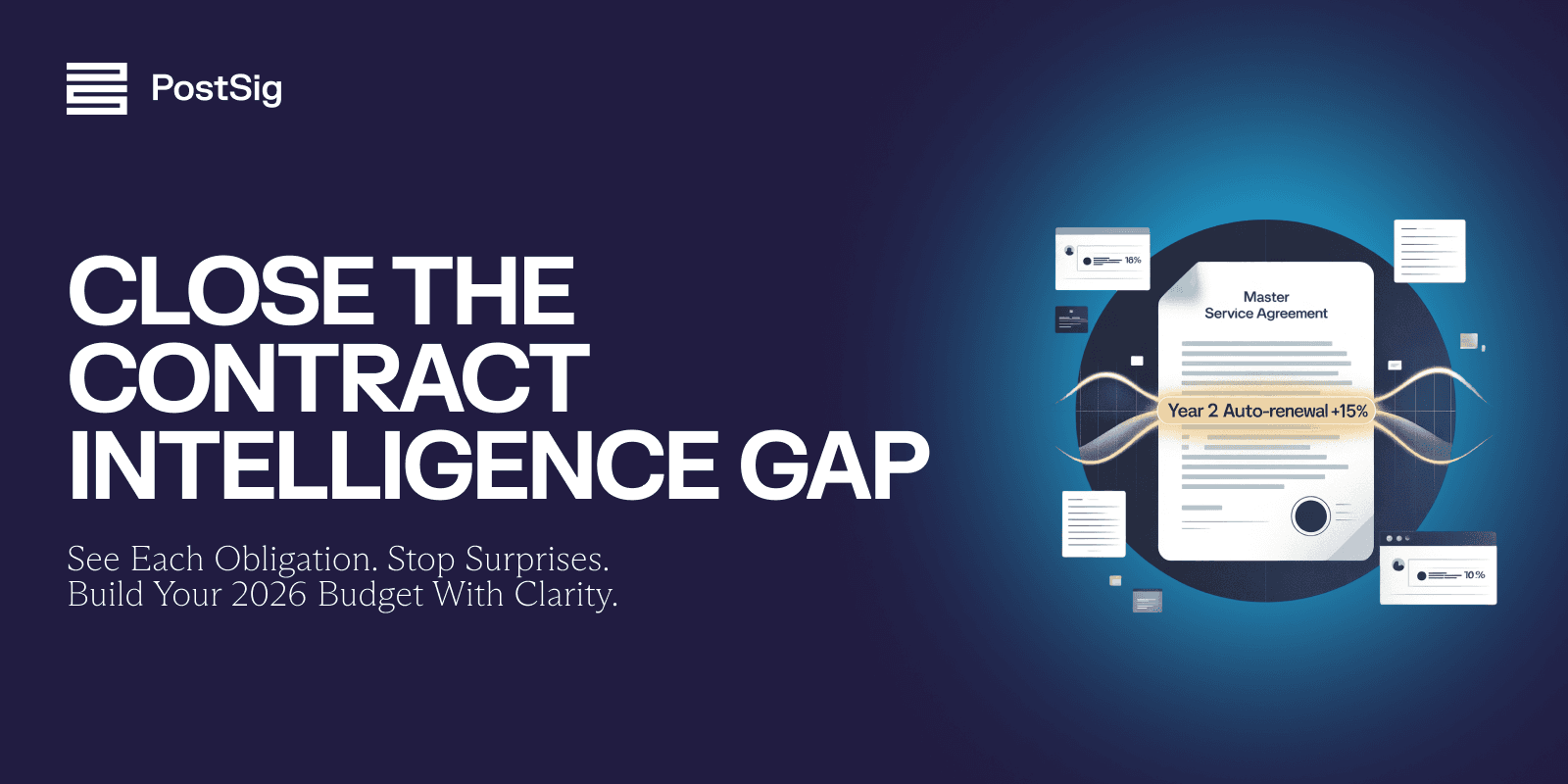From Hidden Costs to Advantage: Why Family Offices Will Redefine Contract Oversight in 2026
The Silent Drain on Family Office Budgets
Family offices are entering a new era. Across North America and Europe, they quietly manage trillions in assets, but the operational infrastructure behind that wealth is under strain. The needs of family offices vary, yet both share a common challenge: fast‑rising complexity across vendor, data, and technology agreements.
Operating costs for family offices can run into the millions each year. Within those budgets, technology, data, and services often account for 4–6%. But the visible line items tell only part of the story. Hidden beneath are drains that can erode 20–30% of value if left unmanaged:
- Overbilling that slips through when invoices aren’t reconciled to governing terms
-
Auto‑renewals with built‑in price escalators triggered without review
-
Unused licenses and services that remain provisioned and paid for
-
Contract omissions and gap detection across your stack
-
Institutional fragility when renewal dates and obligations live in employee calendars instead of systems
For many offices, agreements are still scattered across shared drives, vendor portals, and email. Critical terms are hard to find, renewal timelines are missed, and obligations go unmonitored. The results are predictable: wasted spend, lost leverage, and audit stress.
Regulation Raises the Stakes
Oversight of operational agreements was long treated as administrative overhead. That changed on January 17, 2025, when the EU’s Digital Operational Resilience Act (DORA) came into application. For family offices with European exposure or regulated affiliates, DORA requires you to:
- Document and enforce third‑party obligations
- Maintain full audit trails across agreements
- Demonstrate operational continuity during disruptions
The message is clear: post‑signature oversight is not optional. Contract governance is now central to compliance, credibility, and resilience.
Case in Point: Pennington Partners & Co.
Pennington Partners & Co. (Pennington Partners), a $4B multi‑family office known for disciplined governance, uncovered blind spots in its contract layer. Despite a strong internal team, risk clustered in three areas:
- Utilization
Are expensive licenses and services delivering value?- Renewals
Are you catching automatic price escalations before they lock in?- Access to Terms
Can stakeholders retrieve obligations and entitlements instantly?
With PostSig, Pennington Partners:
- Centralized visibility across each governing document and amendment
- Automated renewal tracking, eliminating reliance on personal calendars
- Audited usage in near real time to rightsize services and avoid waste
Crucially, they did this in under 60 days without adding headcount. For a firm of their scale, this was about governance, not penny‑pinching—reinforcing credibility with principals, trustees, and next‑gen stakeholders while future‑proofing operations.
“Even with a strong internal team, we didn’t realize how much risk and value were hiding in our contract layer. PostSig gave us the visibility and control we didn’t know we were missing.” — Rodd Macklin, Co‑Founder, Pennington Partners & Co.
Why PostSig Matters for Family Offices
PostSig is an AI‑native Contract Performance Management (CPM) platform that turns post‑signature contracts into a system of intelligence for the office. Key capabilities include:
- LineageAI™ → A reasoning engine that traces governing terms across MSAs, addenda, service orders, and invoices. It resolves what’s in force now, connects related documents, and flags conflicts and gaps.
- Inventory™ → A single, real‑time source of truth for licenses, seats, delivery methods, and usage—so finance and operations can cut waste and negotiate with leverage.
- Reports → Automated insights spanning renewals, budget variance, invoice mismatches, under‑utilization, and compliance posture—ready for executive reporting.
- DORA Analytics → Clause‑level checks against regulatory requirements, with traceable findings mapped back to contract text.
With PostSig, your team works from the same source of truth—every contract, every term, every renewal—connected in one place. No silos. No surprises. No confusion between what was signed and what’s actually happening across your vendor and data spend.
For family offices, this isn’t a one-time contract review. It’s continuous assurance that your agreements are protecting wealth, not quietly eroding it. From renewal leverage to compliance readiness, PostSig keeps you in control long after the ink is dry. This translates to:
- Governance & Credibility — Systematic transparency that reinforces trust with principals and stakeholders
- Operational Leverage — Contracts become the control panel for finance, legal, compliance, and operations
- Resilience — Fewer surprises through proactive renewal, usage, and obligation tracking
- Cost Recovery — Visibility that routinely finds recoverable spend from over-billing, silent renewals, and misaligned entitlements
The Bottom Line
The family office of the future won’t be defined by AUM alone. It will be defined by how precisely it governs its contracts, systems, and obligations. Those who master the post‑signature layer will:
- Strengthen governance credibility with principals and trustees
- Turn operational contracts into a lever for performance and resilience
- Avoid costly surprises and hidden drains on performance
- Operate with agility, foresight, and institutional rigor
That’s what PostSig enables—institutional discipline without institutional overhead.


